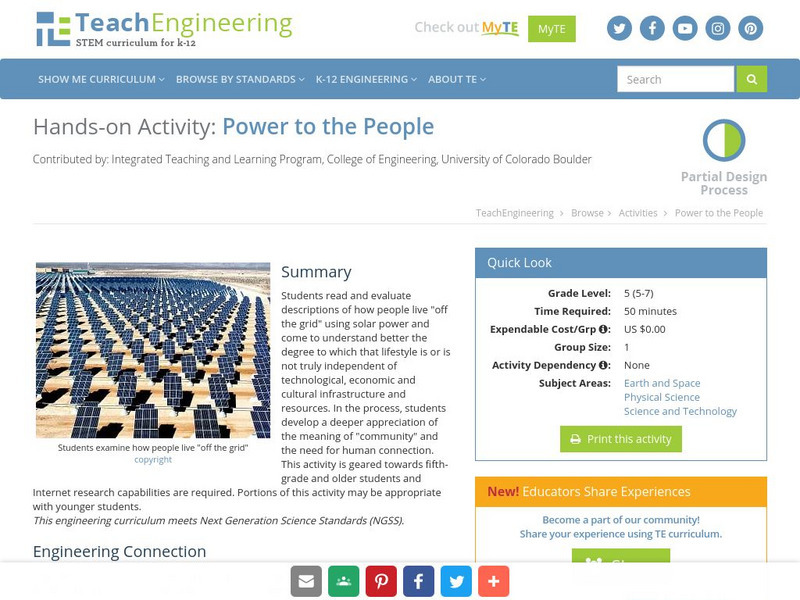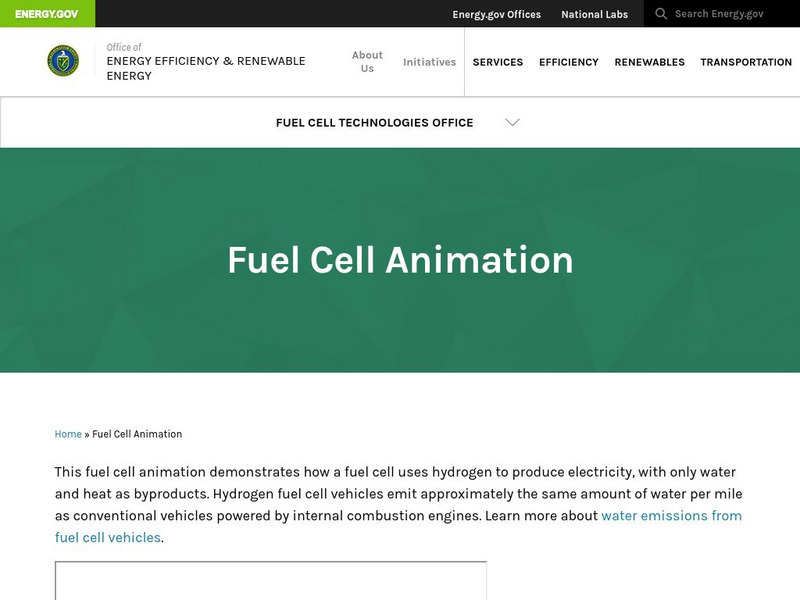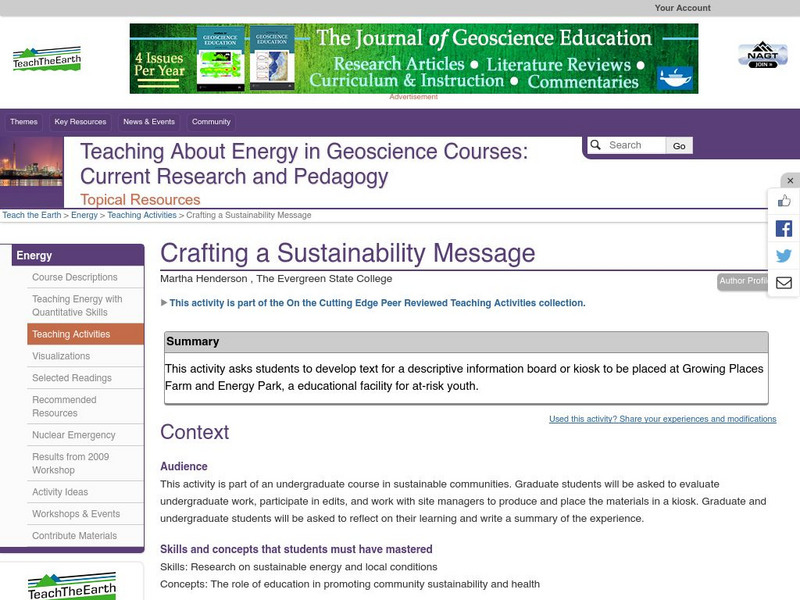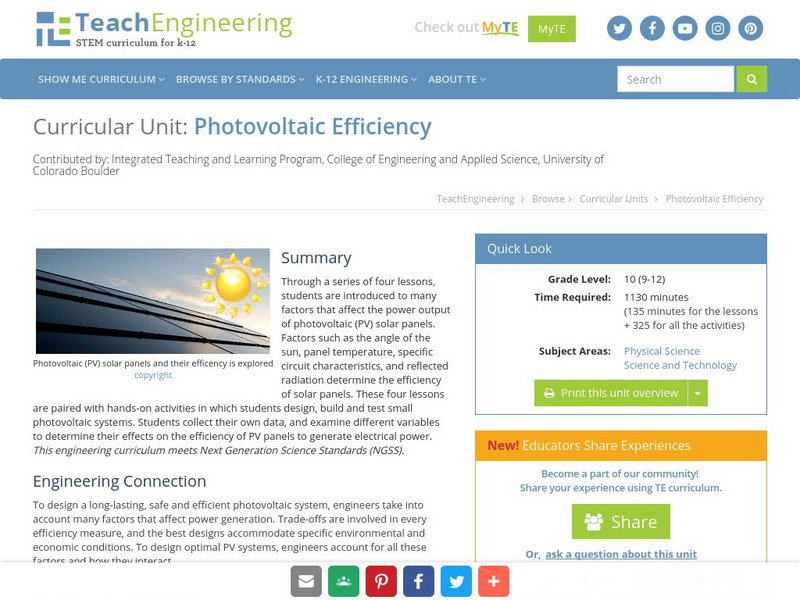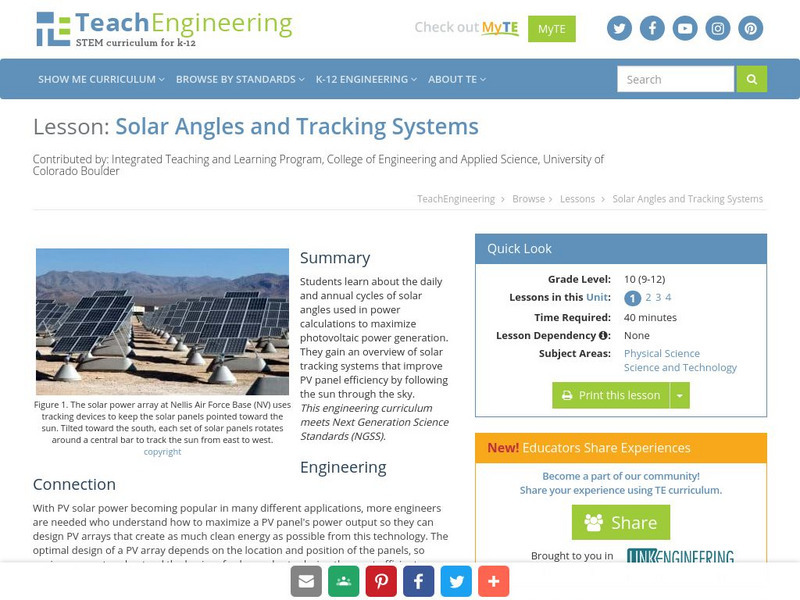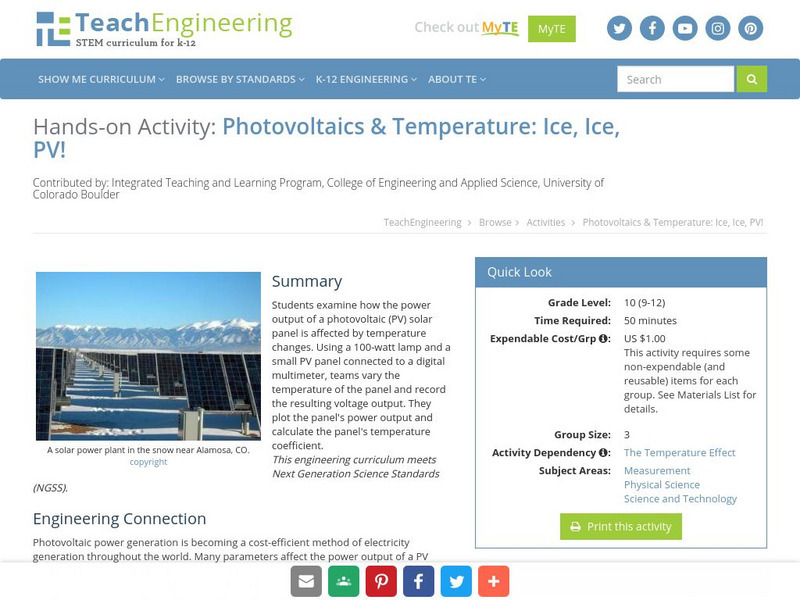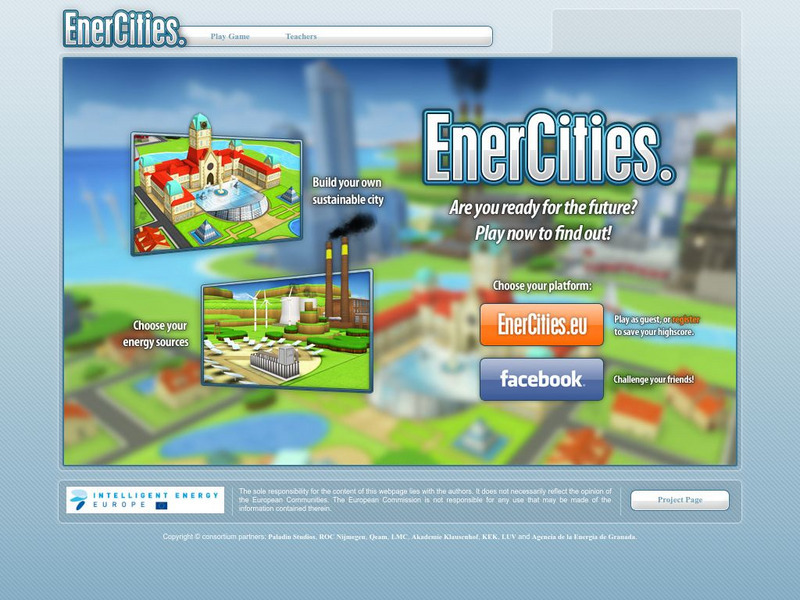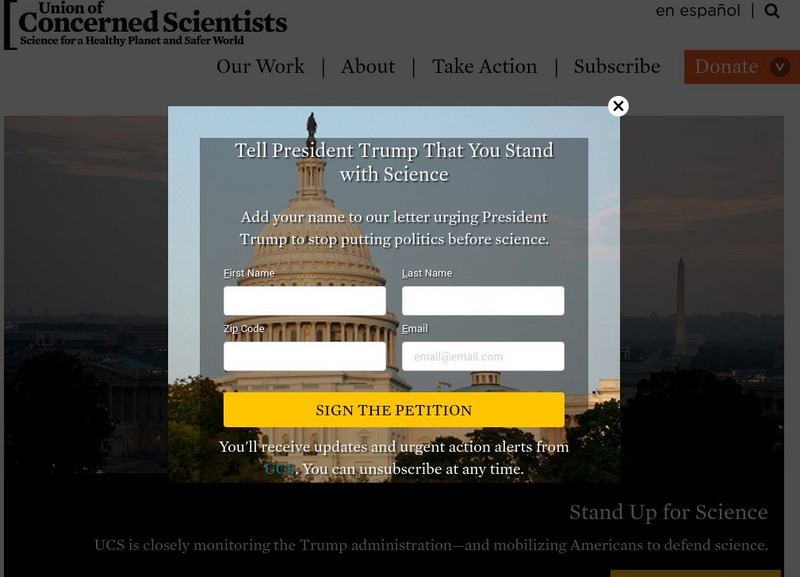TeachEngineering
Teach Engineering: Power to the People
Students read and evaluate descriptions of how people live "off the grid" using solar power and come to understand better the degree to which that lifestyle is or is not truly independent of technological, economic and cultural...
US Department of Energy
U.s. Department of Energy: Fuel Cell Technologies Program: Fuel Cell Animation
A series of animated illustrations show how a polymer electrolyte membrane fuel cell works. PEM fuel cells are the most common type used in flex-fuel vehicles.
Georgia Department of Education
Ga Virtual Learning: Human Impact
In this comprehensive interactive tutorial you will learn how we can reduce our carbon footprint by using alternate energy sources.
Discovery Education
Discovery Education: 3 M Science of Everyday Life: Wind Energy Virtual Lab
Design, build, and test an energy efficient wind turbine that will supply 400 homes with electricity for one year.
Science Education Resource Center at Carleton College
Serc: Crafting a Sustainability Message
This activity asks young scholars to convey a sustainability message by developing text for a descriptive information board or kiosk to be placed at Growing Places Farm and Energy Park.
PBS
Pbs Kids: Cyberchase: Watts of Trouble
Power up rides in R-Fair City using renewable energy. Multi-level game.
DOGO Media
Dogo News: Peek Inside the World's First Carbon Neutral City
A new kind of city is being built in the Arab desert. Read about the unique engineering that is creating Masdar, a "city of the future" which doesn't use fossil fuels.
Practical Action
Practical Action: Wind Power Challenge
In this unit, students explore how life for people in the rural mountainous regions of Peru is different as they live without access to electricity. They learn how small-scale wind turbines have changed people's lives, as with a supply...
TeachEngineering
Teach Engineering: Photovoltaic Efficiency
Through a series of four lessons, students are introduced to many factors that affect the power output of photovoltaic (PV) solar panels. Factors such as the angle of the sun, temperature of the panels, specific circuit characteristics,...
TeachEngineering
Teach Engineering: Power Your House With Water
Students learn how engineers design devices that use water to generate electricity by building model water turbines and measuring the resulting current produced in a motor. Students work through the engineering design process to build...
TeachEngineering
Teach Engineering: A New Angle on Pv Efficiency
Students examine how the orientation of a photovoltaic (PV) panel relative to the sun affects the efficiency of the panel. Using sunshine (or a lamp) and a small PV panel connected to a digital multimeter, students vary the angle of the...
TeachEngineering
Teach Engineering: Solar Angles and Tracking Systems
Students learn about the daily and annual cycles of solar angles used in power calculations to maximize photovoltaic power generation. They gain an overview of solar tracking systems that improve PV panel efficiency by following the sun...
TeachEngineering
Teach Engineering: Ice, Ice, Pv!
Students examine how the power output of a photovoltaic (PV) solar panel is affected by temperature changes. Using a 100-watt lamp and a small PV panel connected to a digital multimeter, teams vary the temperature of the panel and record...
TeachEngineering
Teach Engineering: Pointing at Maximum Power for Pv
Student teams measure voltage and current in order to determine the power output of a photovoltaic (PV) panel. They vary the resistance in a simple circuit connected to the panel to demonstrate the effects on voltage, current, and power...
Intelligent Energy – Europe
European Commission: Enercities Game
Build your own metropolis, keep it sustainable and grow you population to 200. In order to expand your city you will need to find the perfect balance between economy, environment and your citizens' well-being. Good luck!
Other
Union of Concerned Scientists: Science for a Healthy Planet and Safer World
The official website for Union of Concerned Scientists provides information on environmental issues and suggestions on actions people can take to curb environmental harm.
NASA
Nasa: Climate Kids: Huge Machine Harnesses the Tides
Learn how an alternative energy source called tidal energy works, and find out where it is being harnessed.
Khan Academy
Khan Academy: Solving the Storage Problem Quiz
Try this quiz about energy storage technologies.
US Department of Energy
U.s. Department of Energy: Wind Energy
This short site provides an overview of wind power, along with links to technical information on wind power, history of wind power, and more.
Other
Allerin: How Green Robots Are Helping With Environmental Sustainability
Robots are now being used to fight climate change and protect our green environments. They help to fight forest fires, manage our waste, restore the oceans, support renewable energy initiatives, and make agriculture more-environmentally...
Other
Dupont: Make Your Own Water Turbine
Students will create their own water turbine to demonstrate the use of water as a renewable energy source. Included is a detailed lesson plan, a video of the activity, and assessment questions.
NC State University
Ncsu: What Will Be Left of Earth's Non Renewable Resources?
An interactive graph that predicts how many years until more than two dozen natural resources (e.g., chromium, oil, tin, coal, etc.) are depleted, based on current production rates or production that grows each year. Use the slider at...
Museum of Science
The Atoms Family
Let this classic family of monsters guide you as you learn about energy. Interactive exercises, experiments, and demonstrations help to build knowledge and raise questions.
Council for Economic Education
Econ Ed Link: Fewer Watts and Fatter Wallets
Students learn about incentives for alternative energy programs and the role played by non-price determinants in energy choices.
